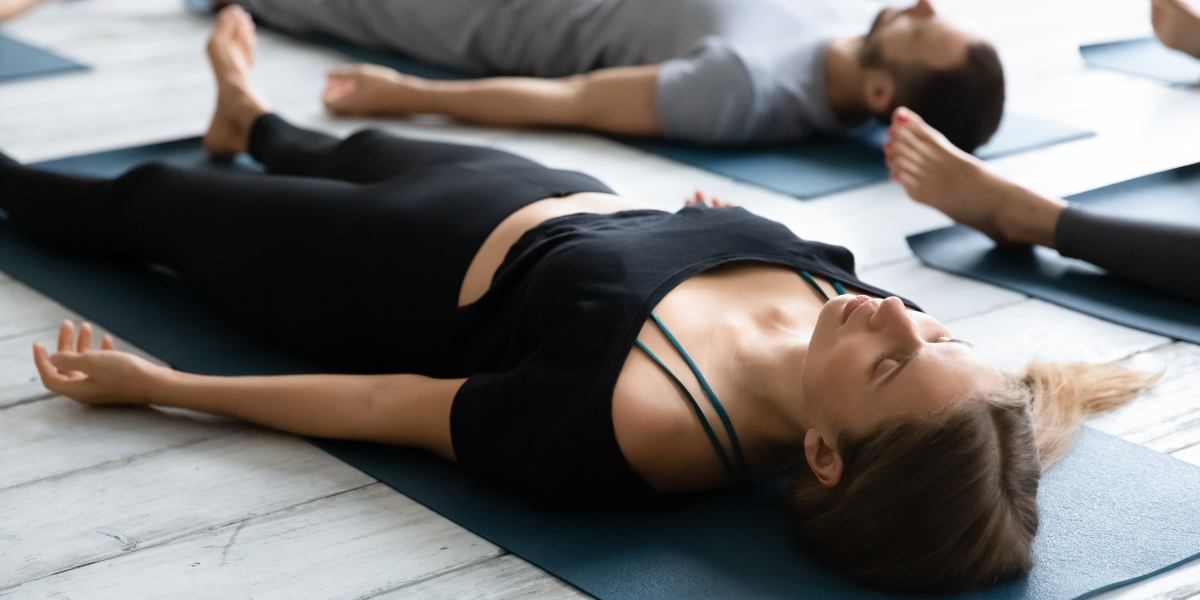
There is a lot that can be said about stress, but the focus of this article is to focus on practical strategies to help you lower cortisol levels, preventing stress from having a negative effect on your well-being. In today's society, the number of psychiatric drugs being prescribed to Americans is at a higher level than ever before in history. Is life today really that stressful? Or is there something we are missing?
Back in 2013, 1 in every 6 U.S. adults reported taking a psychiatric drug such as an antidepressant or a sedative (such as anti-anxiety medication)1. An article updated on March 06, 2020, by Harvard Health Publishing states that these numbers have only gone up2. According to the National Center for Health Statistics (NCHS), the rate of antidepressant use among US teens and adults (people ages 12 and older) increased by almost 400% between 1988-1994 and 2005-2008. Antidepressants were the third most common prescription medication taken by Americans in 2005-2008, which was the most recent period the National Health and Nutrition Examination Survey (NHANES) collected data on prescription drug use3.
A very recent report posted by Mental Health Weekly, claimed medication trends for depression, anxiety, and insomnia have gone up4. They further stated, “as COVID-19 continues to significantly impact the United States from a physical, mental, and financial standpoint, an early analysis by a pharmacy benefit management organization of filled prescriptions at the onset of COVID-19 had found increases in the use of anti-anxiety and antidepressant medications.” That means Americans are using psychiatric drugs more than ever in history, and it’s increasing!
While these numbers may be unsettling, there is much to be said about the way that we can improve our mental health by taking control of our physical health. Although the treatment of psychological conditions such as depression and anxiety is extremely complex and is not something we can address as health and fitness professionals, we do know that our minds and our bodies are connected. So let’s turn to the practical ways that we can lower our cortisol levels, and decrease the physiological stress we experience.
The simplest tool we have to naturally lower cortisol and stress levels is breathing. Yes, that’s right… breathing! It is as simple as that. The diaphragm is a dome-shaped muscle located at the base of the lungs. This is also your most efficient breathing muscle. The diaphragm does most of the work when you breathe in. And while breathing is a natural action we all do, that doesn't mean we are all doing it correctly. To allow your lungs to fill with oxygen, the diaphragm is needed to contract and drop to allow the lungs to expand at their maximal capacity. Your abdominal muscles are also an accessory muscle to help move the diaphragm, which gives you more power to empty the lungs.
Go ahead and practice that breathing method for 10 breaths. How did it go? If you found it challenging, or you were confused on how to do it correctly, that’s totally normal. When our bodies undergo stress, unconscious, natural functions like breathing, can become impaired. Since nearly everyone deals with stress, many people don't breathe correctly either. Diaphragmatic breathing is something that should be practiced on a daily basis. The goal of diaphragmatic breathing is to create an integrative mind-body training in which one can access proper control and awareness of the diaphragm muscle to improve breathing and ultimately decrease your stress.
This technique helps strengthen the diaphragm muscle, allows you to use less energy when you breathe, and decreases oxygen demand. Several studies showed that diaphragmatic breathing lowered heart rate and decreased blood pressure. In one study, 40 participants were randomly assigned to either a breathing intervention group or a control group. Unlike the control group, the breathing intervention group was given 20 intensive breathing sessions, and the results showed significantly improved focus after training, as well as decreased cortisol levels. So while you are working at home on your home, and you feel your shoulders coming up to your ears from stress, breathe. It really is as simple as that.
Here are three more potent “stress-busting” tips:
1. Staying hydrated
Did you know that dehydration is a form of stress? Research shows that being just half a liter dehydrated can increase our cortisol levels! The simple trick to managing your water intake is to drink at least half your body weight in ounces every day (a 160 lbs person would require 80+ ounces). Drinking water is such a simple and effective way to help naturally lower your cortisol levels, there is no reason we should let that form of stress continue!
2. Getting 7 hours of Sleep Per Night
Sleep plays a significant role in our physical health because it is involved in healing and repairing the heart and blood vessels. But what happens when we are on the wrong side of getting enough sleep? Chronic sleep deprivation and sleep restriction are often associated with mild, temporary increases in cortisol levels. In the short-term, a shortage of sleep can lead to your body being in a stressed state. And while you are not in actual danger, your body will go into “fight or flight” mode. In the long-term sleep deprivation may also affect the reactivity of your body to other stressors, making it more and more difficult for proper recovery.
3. Engaging in Restorative Activities
Adding some “Me Time” to your routine and participating in restorative activities can help decrease your overall stress load. Some fantastic activities you might enjoy are meditation, massage, acupuncture, mid-day naps, reading, and walking outside. But let’s talk about MEDITATION because it is a powerful tool to help combat stress!
A study performed by psychiatrist, Dr. Elizabeth Hoge, found that a mindfulness-based stress reduction program helped put an end to anxiety symptoms in people with a generalized anxiety disorder (a conditioned they classified by hard-to-control worries, poor sleep, and irritability)5. And there continues to be more and more research supporting the positive impact meditation has on mental health!
We all go through challenging times at some time or another, and it is very easy for stress to get the best of us. Hopefully, these stress-management techniques will help reduce your cortisol levels, and, at the same time, help you to feel less stressed!
References:
1.Miller, S. G. (2016, December 13). 1 in 6 Americans Takes a Psychiatric Drug. Retrieved from https://www.scientificamerican.com/article/1-in-6-americans-takes-a-psychiatric-drug/
2.Canady, V. A. (2020, May 1). New report examines medication trends for depression, anxiety and insomnia. Retrieved from https://onlinelibrary.wiley.com/doi/abs/10.1002/mhw.32344
3.Wehrwein, P. (2020, March 6). Astounding increase in antidepressant use by Americans. Retrieved from https://www.health.harvard.edu/blog/astounding-increase-in-antidepressant-use-by-americans-201110203624
4.Mental Health Medications. (n.d.). Retrieved from https://www.nimh.nih.gov/health/topics/mental-health-medications/index.shtml
5.Corliss, J. (2019, August 5). Mindfulness meditation may ease anxiety, mental stress. Retrieved from https://www.health.harvard.edu/blog/mindfulness-meditation-may-ease-anxiety-mental-stress-201401086967

Your Guide to Self-Care
Life can be incredibly stressful and demanding at times, and without taking intentional steps to look after our own wellbeing, we can quickly become...

How To Get Started With Meditation
In the last few years, meditation (specifically mindfulness) has become very commonplace, and the reasons are not surprising. It has been linked to...


.png?width=70&height=70&name=Stark_LogoMark%20(1).png)
 Stark
Stark
